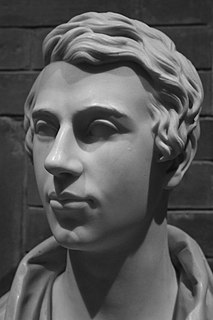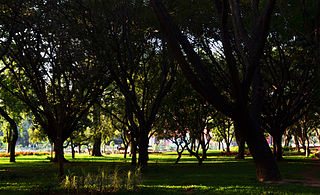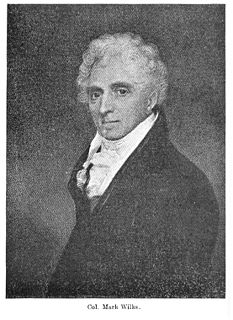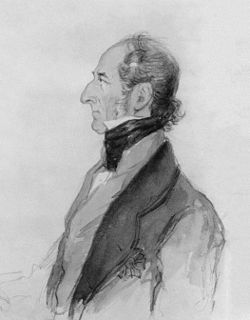See also
- Mark Cuban, American investor and entrepreneur
Mark Cubbon may refer to:

The United States Army (USA) is the land service branch of the United States Armed Forces. It is one of the eight U.S. uniformed services, and is designated as the Army of the United States in the U.S. Constitution. The oldest and most senior branch of the U.S. military in order of precedence, the modern U.S. Army has its roots in the Continental Army, which was formed 14 June 1775 to fight the American Revolutionary War (1775–1783)—before the United States was established as a country. After the Revolutionary War, the Congress of the Confederation created the United States Army on 3 June 1784 to replace the disbanded Continental Army. The United States Army considers itself to be a continuation of the Continental Army, and thus considers its institutional inception to be the origin of that armed force in 1775.

Christopher Thomas Ewart Ewart-Biggs, was the British Ambassador to Ireland, an author and senior Foreign Office liaison officer with MI6. He was killed in 1976 by the Provisional Irish Republican Army (IRA) in Sandyford, Dublin.

Mark Wayne Clark was a United States Army officer who saw service during World War I, World War II, and the Korean War. He was the youngest four-star general in the US Army during World War II.
The United States Air Force officer rank insignia in use today.

A garland is a decorative braid, knot or wreath of flowers, leaves, or other material. Garlands can be worn on the head or around the neck, hung on an inanimate object, or laid in a place of cultural or religious importance.

Lalbagh Botanical Garden or simply Lalbagh, is an botanical garden in Bangalore, India, with an over 200-year history. First planned and laid out during the dalavaiship of Hyder Ali and later managed under numerous British Superintendents before Indian Independence. It was responsible for the introduction and propagation of numerous ornamental plants as well as those of economic value. It also served a social function as a park and recreational space, with a central glass house dating from 1890 which was used for flower shows. In modern times it hosts two flower shows coinciding with the week of Republic Day and Independence Day. As an urban green space along with Cubbon Park, it is also home to numerous wild species of birds and other wildlife. The garden also has a lake adjoining a large rock on which a watchtower had been constructed during the reign of Kempegowda II.

Francis Cunningham was an officer in the Madras Army, member of the Mysore Commission as secretary to Mark Cubbon, and a literary editor. He published a three volume revised edition of Gifford's Works of Ben Jonson in 1871. Cunningham road in Bangalore is named after him.

Cubbon Park, officially known as Sri Chamarajendra Park, is a landmark 'lung' area of Bengaluru city, located within the heart of the city in the Central Administrative Area. Originally created in 1870 under Major General Richard Sankey, then British Chief Engineer of Mysore State, it covered an area of 100 acres (0.40 km2). Subsequent expansion has since taken place and the park's area is now reported to be 300 acres (1.2 km2). It has a rich recorded history of abundant flora and fauna plantations coupled with numerous impressive and aesthetically located buildings and statues of famous personages, in its precincts.
Mark Kerr may refer to:

Colonel Mark Wilks was a Manx soldier, historian and East India Company administrator who worked in southern India principally in the princely state of Mysore. He was the acting Resident at the Wodeyar Court.

Lieutenant-General Sir Mark Cubbon KCB was a British army officer with the East India Company who became the British Commissioner of Mysore state in 1834. During his tenure, he established a law and order system, introduced judicial and economic reforms and through action in all spheres of governance helped develop the economy of Mysore. He resigned from his office in 1860 due to ill-health and left for England for the first time since his arrival in India as a cadet in 1800. The administration of the Kingdom of Mysore under his leadership ensured that the 1857 rebellion had almost no impact in the region. He died in 1861 on board ship at Suez. Cubbon Road and Cubbon Park in Bangalore are named after him.
"Cupid's Arrows" is a short story by Rudyard Kipling. It was first published in the first Indian edition of Plain Tales from the Hills in 1888, and in subsequent editions of that collection.
Captain Francis Richard Cubbon was an aerial observer and flying ace in the First World War. In conjunction with his pilots, he was credited with 21 aerial victories.

Mark Phillip Hertling is a former United States Army officer. From March 2011 to November 2012, he served as the Commanding General of United States Army Europe and the Seventh Army. Hertling served in Armor, Cavalry, planning, operations and training positions, and commanded every organization from Platoon to Field Army. He commanded the 1st Armored Division and Task Force Iron/Multinational Division-North in Iraq during the troop surge of 2007 to 2008.

Cubbon Park is a station on the Purple Line of the Namma Metro in Bangalore, India. It was opened to the public on 30 April 2016. The station is located a few metres away from one of the entrances to Cubbon Park.
Captain is a title, an appellative for the commanding officer of a military unit; the supreme leader of a navy ship, merchant ship, aeroplane, spacecraft, or other vessel; or the commander of a port, fire or police department, election precinct, etc. In militaries, the captain is typically at the level of an officer commanding a company or battalion of infantry, a ship, or a battery of artillery, or another distinct unit. The term also may be used as an informal or honorary title for persons in similar commanding roles.

The Coorg Medal was awarded by the Honourable East India Company (HEIC) to local forces who remained loyal during the Coorg rebellion of 1837.
Major-General John Hamilton Cubbon, (1911–1997) was a British Army officer.
Cubbon is a rare patronymic manx gaelic (Gaelg) surname, of exclusive origin from the Isle of Man.
Mark Cubbon is a British healthcare official. He was appointed Chief Executive of Central Manchester University Hospitals NHS Foundation Trust in November 2022.